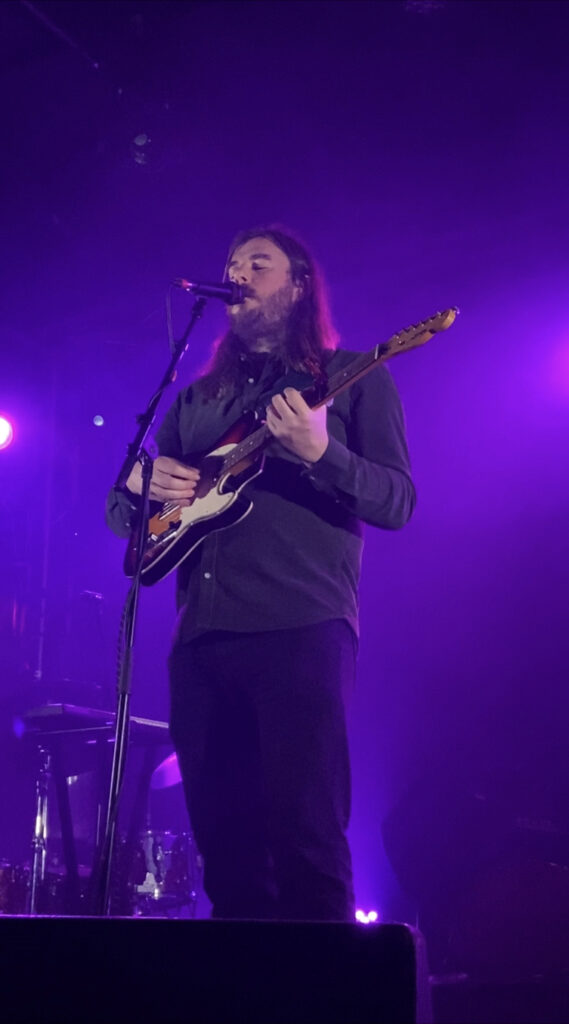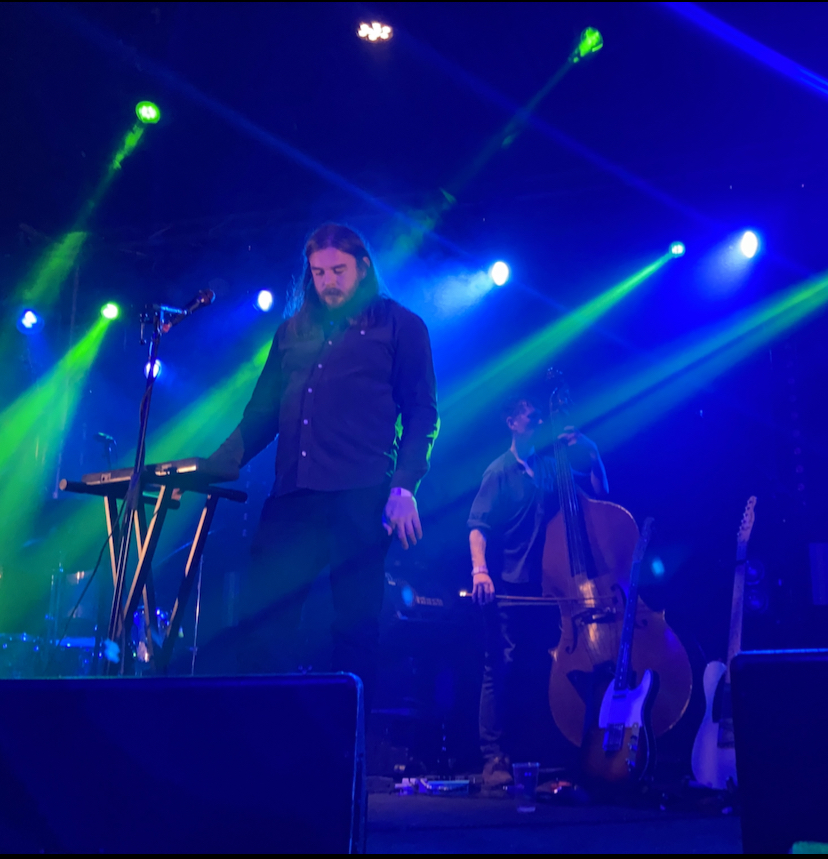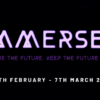To celebrate Independent Venue Week (IVW) 2024, over 200 venues have come together at grassroots venues across the UK and the North of Ireland for seven days of exemplary musical performances. No matter where you are in the UK, there will be an independent venue near you where you could see the next big thing for the price of a pizza. Over the last 20 years, 35% of Grassroots Music Venues (GMVs) have closed and without them, where do we get our stadium fillers?
Looking back at the Great Escape Festival Programme from 2006 it’s heart-breaking to see the number of venues in Brighton alone that have closed including The Ocean Rooms, The Freebutt, The Zap, The Honey Club, Sticky Mike’s, Hector’s House, and the Pressure Point to name but a few. Places where bands are given a springboard to success, where life long memories are made and fans are inspired to create bands of their own and it’s the same all across the UK. Looking back at the TGE’s 2006 programme I can see huge artists playing in tiny grassroots venues. Adele played in Redroaster coffee shop during the day wowing the crowds with her voice and guitar, Laura Marling played at The Zap (now gone) Kate Nash and Lethal Bizzle played at The Pressure Point (now gone) while I remember Ed Sheeran, Adele and Foals playing at The Concorde 2, which luckily still stands.
Without small venues like this for artists like Adele to showcase their talent, where would we be?
Dean Richardson from Frank Carter and the Rattlesnakes said, “I think it’s really sad when any venue of any size closes… It’s a really delicate ecosystem…as a band you learn a lot by going on different stages so they’re all integral, so if you take one out everything gets a bit disjointed and a lot of people suffer- bands and fans and music as a whole. Anytime a venue gets taken out it causes a lot of disruption to the whole thing.”‘
Music Venue Trust, with the help of patrons and public pledges, have been gaining great traction with their #OwnOurVenues initiative which has been likened to “The National Trust, but for venues.” It aims to secure the long-term futures of such venues by directly tackling the issue of ownership. They bought their first acquisition The Snug in Greater Manchester in October 2023 and this is just the start.
In response to an open letter by Music Venue Trust’s CEO Mark Davyd, Arena operators, ASM Global have pledged their support to grassroots venues, agreeing to match Enter Shikari‘s pledge to donate £1 from every ticket sold to the MVT when they play at Wembley in February, amongst other initiatives. Davyd said, “We want to thank ASM Global for being the first arena operators to respond to our call for support from the live music industry to deal with the crisis engulfing grassroots music venues. This is an incredibly important first step.”
It’s important for all of us to support our local venues so they survive to support the next generation of talent. It’s a win-win situation. We get a great night out for a good price and they get to thrive. Luckily The Concorde 2 on Brighton’s seafront is still standing in faded glory. Now entering its 24th year with this name, the Victorian venue was chosen by Foo Fighters for a secret gig under the name The Holy Shits ten years ago and I remember Dave Grohl calling it ‘the perfect venue‘ as the crowds gathered both inside and out to catch a glimpse.
Rich, with well worn floors, the venue has an eclectic history like so many across the country going from being a tea room in the 1800s to a bikers’ cafe in the 1960s, to an amusement arcade in the 1970s, and a raver’s haven in the 1990s where Fatboy Slim had his Big Beat Boutique and performed at the opening night of the venue that we all know and love in 1999.

To celebrate Independent Venue Week, tonight, Dublin singer and multi-instrumentalist John Francis Flynn, the winner of two RTE Folk awards, brought his own groundbreaking fusion of Irish alt -folk, indie, experimental, ambient energy to the stage. A reimagined cacophony of darkly intense and beautiful ballads laced with underwater drones, deep vocals and double bass licks, creating a modernist ambient jazz fused flow for the centuries old folk tunes to rise and fall in, in all weathers; from the pastoral flow of summer to the most thunderous of impressionistic walls of sound, Flynn created something truly original. Having first seen him supporting Lankum a few years ago, powerfully armed only with his guitar and whistle he has taken it to the next level, keeping that vocal intensity and musical dexterity and elevating it to a truly original, earthy yet sophisticated plane. Merging the pastoral with industrial sonic imagery – like the landscape of Ireland itself. Where Lankum have fused the drones of the Indian harmonium with the uillean pipes, Flynn fuses his trad songs with ambient cello and clarinet, synths and free jazz rhythms in place of the bodhrán, working in intuitive harmony with his highly skilled bandmates, reconstructing and rearranging the trad songs as folk singers have been doing for centuries.
Folk music has always changed and progressed with the times, enhanced and ornamented by the oral tradition differing by region and time with complementary and juxtaposing versions, enriched and ornamented as steadily as time itself. This is deeply and expertly explored by Ian Lynch of Lankum in his Fire Draw Near Podcast. Lankum themselves seem to have taken older variations of songs like ‘Wild Rover ‘and amalgamated them into something wholly original just like Flynn who deconstructs and reimagines folk songs rich with ambient synths, resonant vocals and tape loops layered with clarinets synths and strings to organically and naturally move the genre forward, flowing as it always has.
With the vocal intensity of Luke Kelly and immense musical dexterity, Flynn and his multi-talented band imbue the songs it with ambient sonics, submerging the room in intense liquid melodies punctured by tidal waves of double bass bows and electric futuristic bolts of thunder that could match the impressionistic wall of sound by the likes of My Bloody Valentine. Threats loom in the distance as we hear at he end of stunning tracks like ‘Kitty‘ echoing the dark drones of Dundalk shoegazers, Just Mustard. There was something truly beautiful and visceral about this gig, something universally human that resonated and connected the people with Flynn’s dark melismatic vocals, creating a drone to echo that of the double bass, synths and loops of the mixing desk behind him.
Standing eyes closed like a Shamen summoning the muses to the Concorde 2, the crowd looked on spellbound. There is some magic in his ability to make us hear songs afresh – like they are brand new. Songs that are so embedded in our culture that they feel like breath and yet felt reborn on the stage. Holding the crowd in the palm of his hand while he sang trad favourites like ‘Zoological Gardens‘ popularised by The Dubliners, cradled with swooning drones, The Pogues‘ favourite ‘Kitty‘ and ending with an intense rendition of Ewan MacColl’s ‘Dirty Old Town’ , all performed and received like debuts
The room was bathed in intense liquid harmony, shimmering with the multicoloured intensity of diesel on spring water. Flynn spoke of how he had asked Spider Stacy of The Pogues where the song ‘Kitty‘ had come from. Shane MacGowan‘s sister told him that their mother got it from a great Uncle and that it had been sung for hundreds of years in Tipperary.
Flynn said, ” I think it’s really powerful how music travels like that- traditional music in particular travels through generations of families and communities and I think that’s very accessible to all of us as listers and singers or whatever..we can engage in that very very easily NOBODY owns it and that’s really powerful. You can learn a lot about where you are from and I think Shane MacGowan really understood that. Not only was he a great singer songwriter, but he was a great carrier of tradition and he connected with his family, community and his home. All the people who sing these songs leave a bit of themselves in them and I think it’s like time travel. You can connect with people who you’ll never meet and I think that’s very powerful and much needed in today’s society. If you want to explore where you are from maybe just listen to a folk song”

The intense power that the likes of John Francis Flynn and Lankum have to fully submerge you in their soundscapes is remarkable and otherworldly. In an age of the fleeting ephemerality of social media and sonic saturation, it’s a truly beautiful thing to be able to make audiences listen mindfully to sounds that reverberate so deeply, awakening something long gone.
However, it wasn’t just Irish tunes that he reawakened. Fan favourite ‘Mole in the Ground’, a surrealist Appalachian American anti-establishment folk song first famously recorded by Bascom Lamar Lunsford in 1928 was brought to life with bluesy psychedelic riffs the slant of the double bass weaving through his spoken word loops. John Francis Flynn is creating an expansive new genre; political and determined, but surging with swirling visceral strength, crafting something truly unique intense and sophisticated.
There were shivers down my spine with the intense reverb of ‘Kitty’ and ‘Shallow Ground ‘ and I felt like I was floating on a rocket, fuelled with draíocht when he played ‘Within a Mile of Dublin’ on his twin whistle creating complementary harmonies with two whistles taped together as the trad melodies bounced off the walls of the venue. My favourite part of playing in session as a trad musician is when you’re in the zone and all the worries of the world melt away as you lose yourself in the flow, float above the music and don’t even notice yourself playing. But what I’ve never seen before is the whistles creating the steps to the heavens and then the free jazz cymbals and clarinet and double base, loops and feedback magnifying that flow in shoegaze glory. Then, as the whistles stepped back we were immersed in that intense sonic space, letting it breathe and swell, wax and wane like the sea outside. We were guided from the familiarity of trad to new inventive sonic spaces and that is true musical craftsmanship, creating that stunning wall of sound that reverbs within.
This is natural progress. The creation of a whole new elegant yet earthy genre where the voice is immersed in jazz fused experimental drones These sophisticated sonics are laced with deep vocal intensity and it’s beautiful and at at times otherworldly. This is music as it should; be innovative edgy, dark, nourishing, warm and soul enhancing.
Just as Johnny Moynihan brought the Greek trichord bouzouki into the Irish trad scene in the 60s and now it’s a mainstay, maybe in the future we will see the clarinet and double bass naturally enhancing our sessions and remember that it was first done by John Francis Flynn and his band.
It seems apt on Independent Venue Week week to be able to see something so fresh vibrant and new and yet enriched with history like the venues themselves. So keep supporting independent venues. You could very well be seeing the next big thing.



